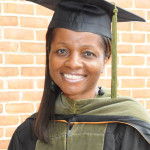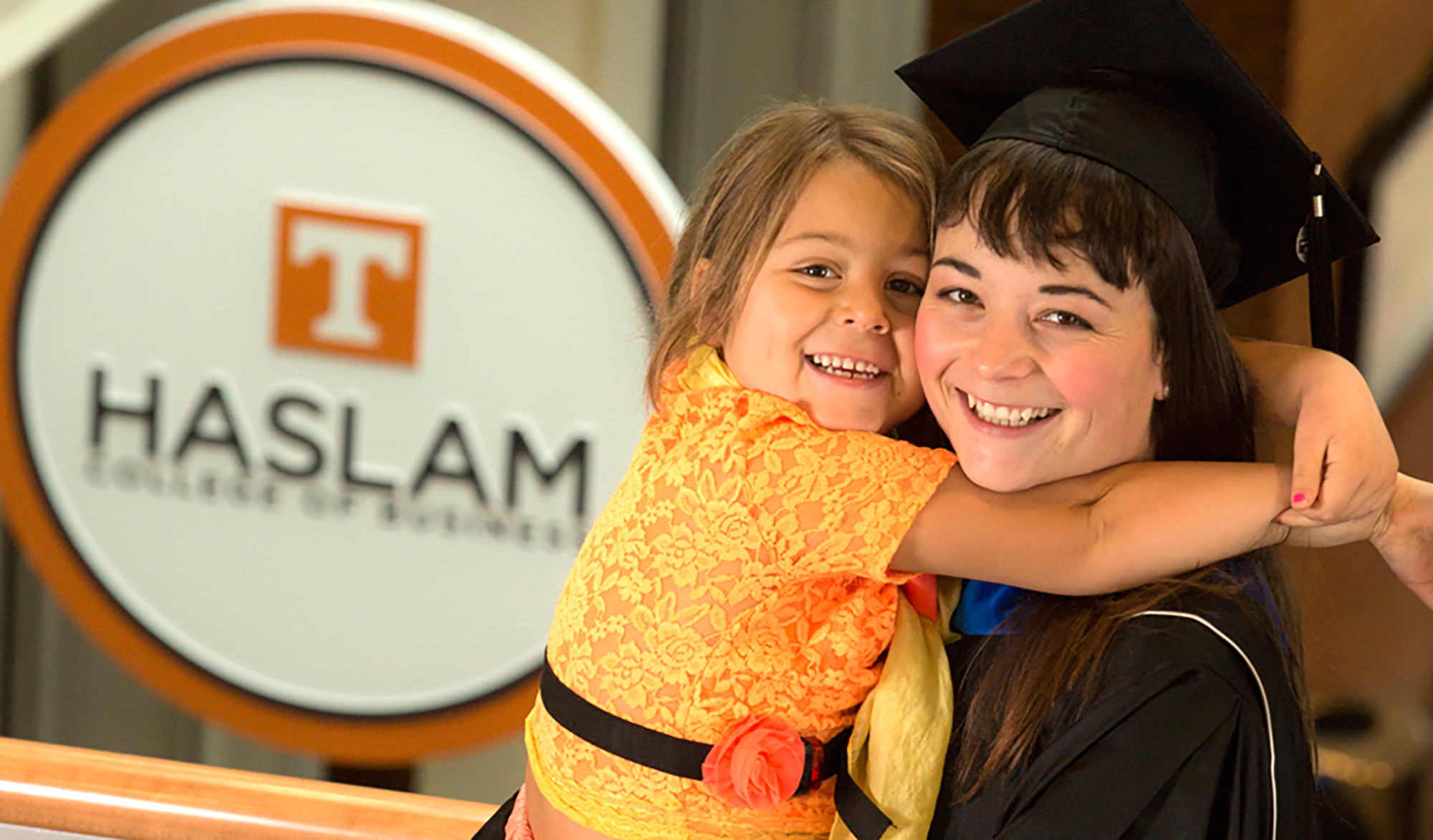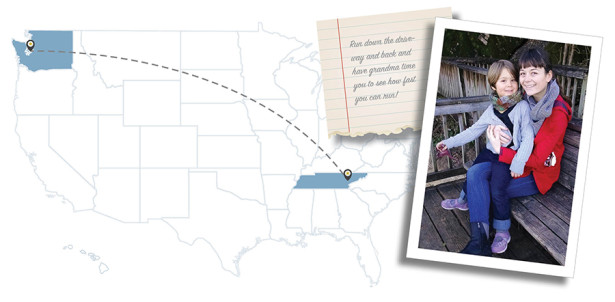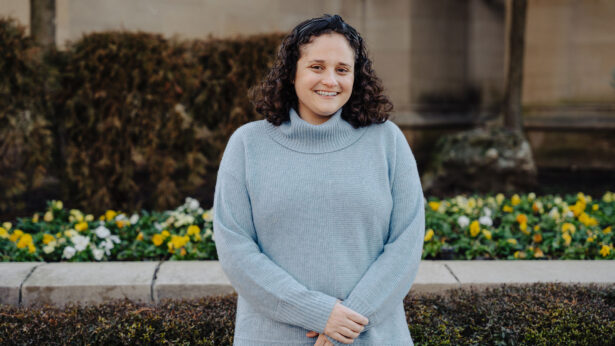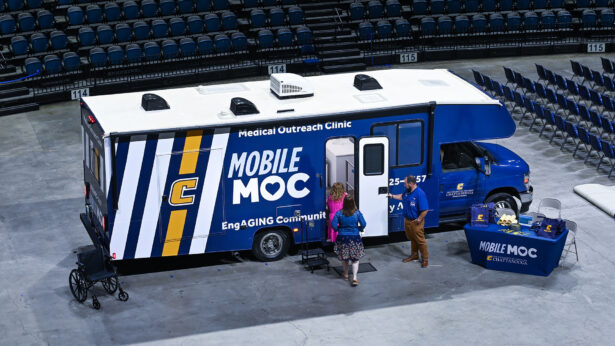By Tyra Haag
For nearly a year, 2,570 miles separated Madeleine Beatty from her 5-year-old daughter, Mathilde.
In December 2015, Mathilde watched her mom walk across the stage at UT’s graduate hooding ceremony for the Haslam College of Business. For 18 months, Beatty had worked to earn her master’s degree in business analytics.
Beatty became a single mom in 2010 while enrolled in college on the West Coast. She earned her math degree from Evergreen State College in Olympia, Washington, and briefly worked in a data-related job for the Washington State Department of Transportation.
But she was unable find a job that utilized her math degree, except in physics, near her home in the Seattle area.
“Once I knew I wanted to specialize in business analytics, I started researching graduate programs,” Beatty says. “It’s such a newly renovated field, and I knew potential employers wanted to hire well-rounded individuals. A friend of mine went through UT’s MSBA program, which is why it was on my radar—plus there were no graduate business analytics programs on the West Coast except for an online option.”
UT’s Master of Science in Business Analytics program, launched in 2010, educates students in the application of quantitative tools to make data-driven decisions to improve business performance. The program, listed in Information Week’s “20 Top Big Data Programs,” has successfully placed 100 percent of its students within three months of graduation, as business analytics is an emerging, job-plenty field.
Beatty moved to Knoxville to begin the program in August 2014. Her daughter stayed in Seattle. Beatty said it was a gut-wrenching decision, but she knew she was investing in their future.
“It was pretty emotional,” Beatty says. “Mathilde stayed with my mom for the first year of the program, and I only got to see her on breaks. I tried my best to explain to her that school is important, and nothing should stand in your way. I told her that one day she’d go on a big trip herself and go to college.”
Beatty put together envelopes for her daughter to open every day they were apart. Inside were notes that posed a question or prompted a fun activity.
“We had a long driveway back home, so in one of the notes I told her to run down the driveway and back and have my mom time her to see how fast she could run,” Beatty says. “I did those things to help her feel connected to me.
“The hardest part, by far, was the second semester. We got through the first semester blindly, not knowing what to expect, and so we fought through it. But with the second semester, we both knew how hard it was going to be.”
Beatty admitted it was difficult trying to stay on top of school while feeling emotionally disconnected being so many miles away from her daughter.
“My mom and sister were extremely supportive,” she says. “I couldn’t have done this without them. It also gave Mathilde an opportunity to become even closer with her grandmother and aunt.”
Beatty landed a highly sought-after internship back home for the summer. She worked at Amazon.com as a business intelligence engineer.
Along with making up for lost time, working in the internship close to home gave her the opportunity she needed to stay the course.
“I made more last summer than I had in the last 12 months,” Beatty says. “It also gave me the freedom to bring my daughter back to Knoxville with me for my final semester of grad school.”
The pair moved back home after graduation, and Beatty began working full time in her dream job for Amazon.com in January.
“As an undergraduate, my daughter and I were living off the food bank and below the poverty line,” says Beatty. “And now, this program has propelled me into the top 25 percent of income earners. The financial security I have now is hard to put into words. If you’d told me a year ago this would be the outcome, I would tell you that you are crazy.”
“The program did everything it said it would,” she says. “I work for an amazing team at Amazon—plus, being able to provide for my daughter at the same time is a huge peace of mind.”
At the beginning of their time apart, Beatty gave her daughter a map of the United States to keep on her wall, with a thumbtack marking Seattle and another marking Knoxville. She gave her daughter a string to connect the two cities to represent their connection to each other and the distance that separated them—a distance that maternal love defied.
More in this Issue:



